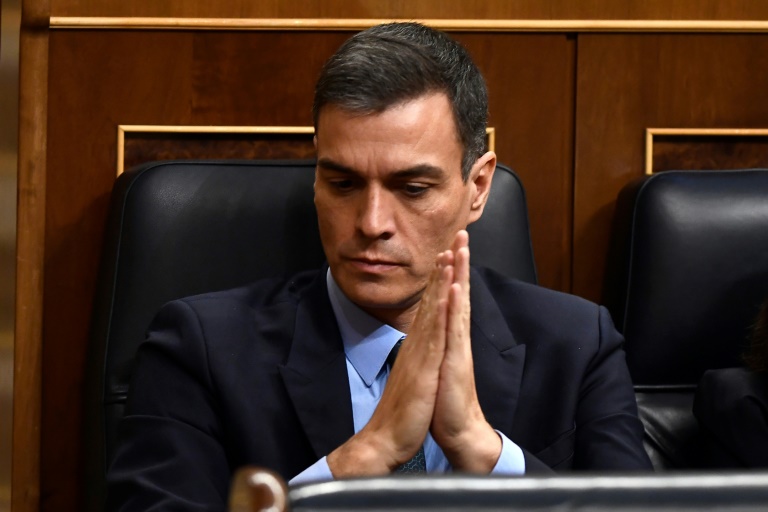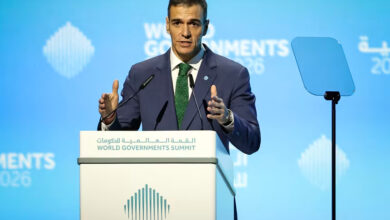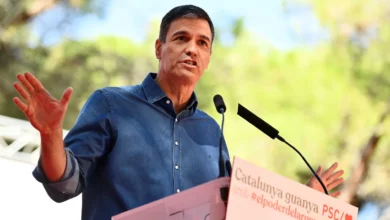
Spanish Prime Minister Pedro Sanchez on Friday called an early general election for April 28, the third in less than four years, after his draft budget was rejected in the Spanish parliament over the Catalan secession crisis.
“Between two options – not doing anything and continuing without a budget, or… giving Spaniards their say – I choose the second,” Sanchez told reporters, before announcing the date.
Sanchez took power just over eight months ago after he ousted his conservative rival in a dramatic parliamentary no-confidence vote, but it has been a turbulent term.
At the head of a fragile minority government, the 46-year-old had to rely on the support of unlikely bedfellows in the Spanish parliament, including the far-left Podemos party, Basque nationalist lawmakers and – crucially – 17 Catalan separatist MPs.
On Wednesday, Catalan MPs joined right-wing lawmakers in rejecting his budget.
They withdrew their backing in protest at separatist leaders being put on trial for their role in a 2017 attempt to break Catalonia from Spain.
Even before Sanchez’s announcement, the socialists had already adopted a campaign-like tone, accusing Catalan separatists and conservatives of blocking a budget that included many social-spending measures after years of austerity.
On Friday, Sanchez blasted “blocking a social budget after seven years of social injustice, austerity, and spending cuts.”
He highlighted his government’s short track record – from a 22 percent rise in the minimum wage to fighting against energy poverty.
‘Turbulent term’
“It’s the end of an atypical, turbulent term,” said Paloma Roman, politics professor at Madrid’s Complutense University.
Sanchez has been savaged by the conservative Popular Party (PP), center-right Ciudadanos and more recently small, far-right party Vox.
Last Sunday, they called a big protest in Madrid to ask for early elections.
One of their biggest bugbears has been the socialist government’s negotiations with Catalonia’s separatist executive as Madrid tries to ease tensions with the northeastern region.
While Madrid says it initiated talks to try and find a way out of an ongoing crisis, the opposition has accused it of yielding to separatist demands merely to stay in power.
Several opinion polls see Sanchez’s Socialist party winning elections but likely unable to form a majority in parliament, even with Podemos.
Polls say the PP, Ciudadanos and Vox – which has surged recently thanks to its hard line against Catalan separatism – could be able to form a majority.
That would lead to a coalition government with the PP and Ciudadanos, formed with the support of Vox – which is what happened in the southern region of Andalusia after local polls there in December.
“Tensions between the central government and Catalonia are likely to increase in this scenario,” said Steven Trypsteen, ING economist for Spain and Portugal.
The other scenario, he said, could be that the right-wing bloc does not get enough lawmakers to form a majority.
In that case, “political gridlock” would be possible, he said.




